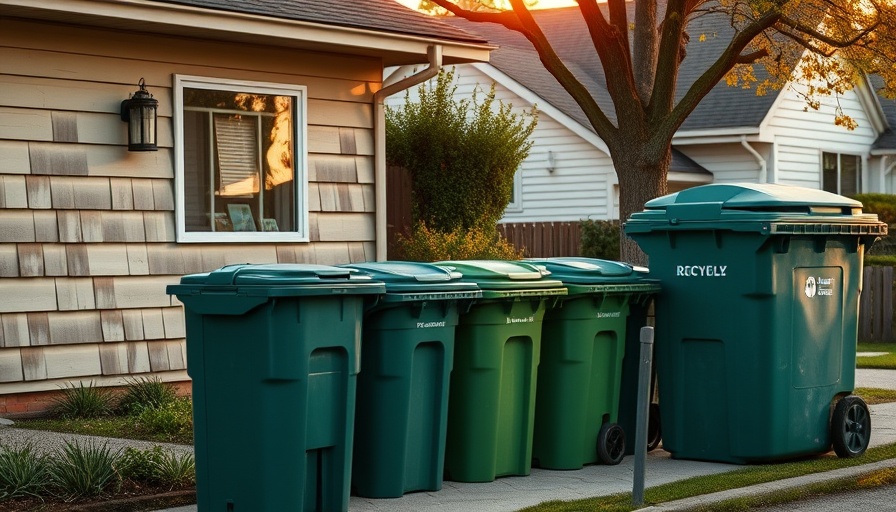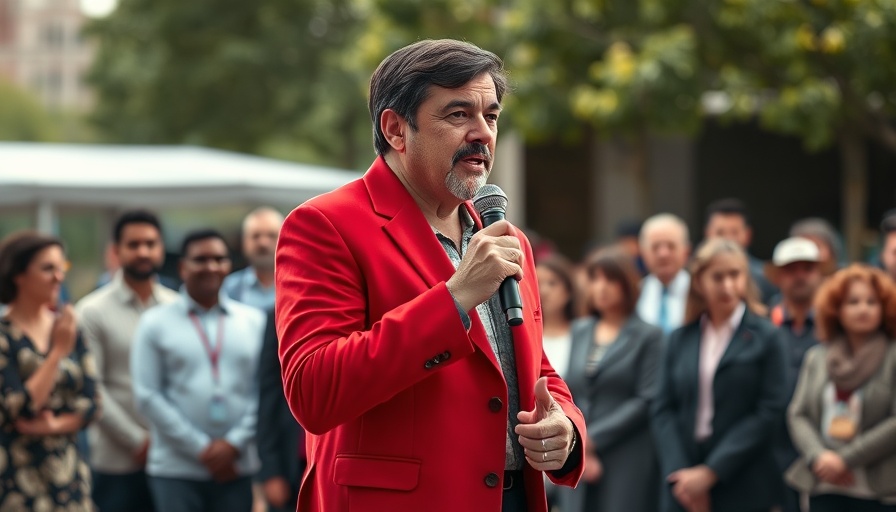
The Rising Cost of Trash Collection: What San Diego Residents Need to Know
In a controversial decision, San Diego’s City Council voted 6-3 to implement a new trash collection fee for single-family homeowners. Faced with a projected $258 million budget deficit, Council President Joe LaCava emphasized the urgent need to avoid deeper cuts across essential services. "If we do not pass a trash fee, we will blow at least an $80 million hole in that budget," he stated, highlighting the direct relationship between the fee and the city's financial health.
Understanding the New Trash Fee Structure
The newly approved monthly rate for full-service customers is $43.60, down from the earlier proposal of $47.59. It's a considerable leap from the original estimate presented to voters in 2022, making this fee notably higher. San Diego previously stood out as the only city within the county that did not charge for trash collection for single-family homes, a statistic that has now changed amidst financial pressures.
Comparing Trash Fees Across San Diego County
For context, a survey conducted among 12 San Diego County cities revealed a median monthly trash fee of $32. For example, residents in El Cajon pay about $28, while those in Chula Vista pay between $23 to $35. These figures illustrate greater affordability in other regions compared to the higher charges San Diego homeowners will now face.
Impact of the Trash Fee on Local Services
While the new trash fee aims to mitigate a staggering deficit, it raises questions about the potential ramifications on local services should such a fee have not been adopted. Without it, drastic cuts could have severely impacted community favorites, including libraries and parks, which many families rely on for recreational and educational activities.
Contextualizing Budget Cuts and Community Backlash
In recent discussions, some council members and constituents have raised concerns about proposed budget cuts that could follow the elimination of public amenities, specifically public restrooms and fire rings at local beaches. The California Coastal Commission has voiced its opposition to these cuts, emphasizing the importance of preserving public access to coastal resources, which further underlines the ongoing tension between budget constraints and community needs.
Future Implications for San Diego’s Budget
The approval of the trash fee appears as a short-term solution for budgetary challenges, but it may set a precedent for future policymaking in the city. Residents should remain vigilant as discussions continue—monitoring how these financial decisions align with quality public services and access.
Engaging Residents in the Decision-Making Process
As San Diego residents adjust to this new trash fee, it’s essential for the community to engage in discussions about fiscal responsibility and how municipal budget decisions directly affect their daily lives. Participating in city council meetings or communicating with local representatives can provide an opportunity to influence future decisions and advocate for more transparent budgeting practices.
Be Informed: Stay Engaged with Local Governance
Staying informed about city governance can ensure that residents' voices are heard and considered in future policymaking. Even though the trash fee is now in place, the conversation around budget transparency and public service funding is far from over. To remain engaged, San Diego residents can participate in local forums, provide feedback, and stay abreast of changes that directly impact their community.
Your voice matters: As residents of San Diego, it’s crucial to understand these civic processes. Remain informed, share your opinions, and participate in local governance to shape a community that serves everyone effectively.
 Add Row
Add Row  Add
Add 




Write A Comment